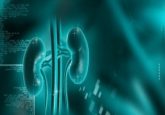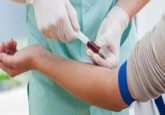Optimizing cardio-oncology programs for cancer patients

In the USA and in most industrialized nations the two leading causes of death are heart disease and cancer [1]. Cardio-Oncology or Onco-Cardiology is a specialty that focuses on the intersection of cancer and cardiovascular disease. There are many points along the spectrum of cancer where cardiovascular risk factors or disease may influence the short- and long-term course of patients. From the interplay of shared risk factors between cancer and cardiovascular disease to the use of potentially cardiotoxic therapies that may cause acute or late toxicities; cardiovascular disease impacts overall morbidity and mortality in patients with cancer. Along this spectrum there are several potential points where interventions may lead to improved cardiovascular outcomes and overall health (Figure 1).
Chemotherapy can cause direct effects on the heart leading to left ventricular dysfunction (cardiomyopathy). Anthracyclines are the prototypical cardiotoxic chemotherapy and have been used effectively in a variety of cancers for the past five decades. The incidence of cardiotoxicity varies among different studies in part related to different patient populations (survivors of childhood vs adult cancers), different methods of surveillance and different definitions of cardiotoxicity.
Click here to view the full article.




